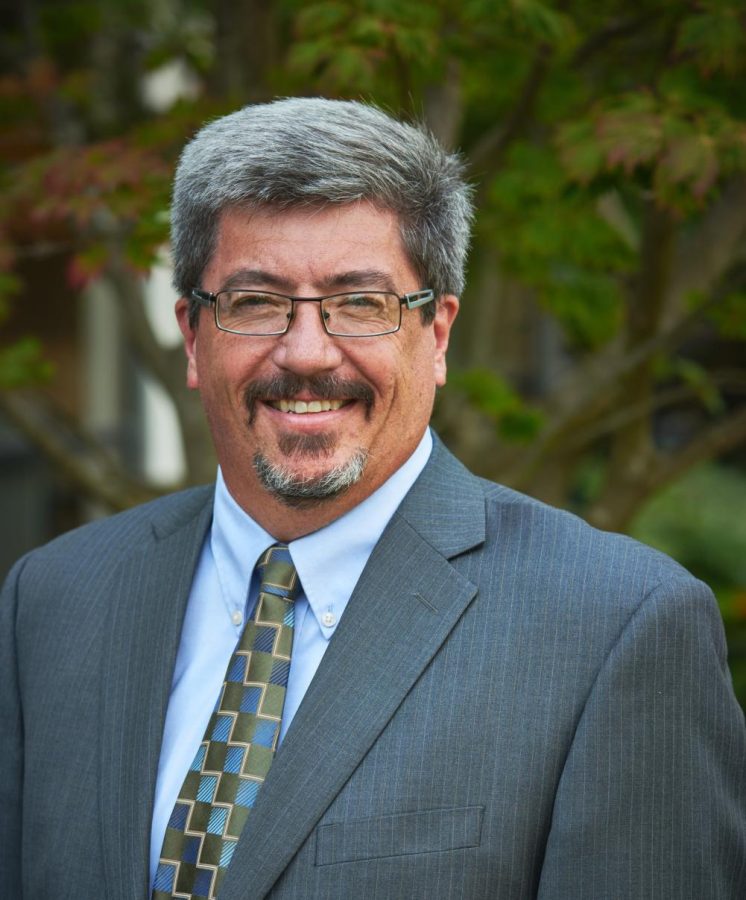In front of an audience of their peers, the ASSP senators fielded questions ranging from questions about diversity and representation on campus to each members’ goals for the school year.
The event was the “State of the Association” or SOTA, which allowed students one on one access to their elected senators.
The senators answering the questions were ASSP President Nathan Samayo, Executive Vice President Kaitlyn Payton, Vice President of Ministries Maddy Fulcher, Vice President of Finance Sarah Kirschner and Vice President of Campus Affairs Celeste Ajayi.
ASSP Communications Manager Jacky Nakamura facilitated the conversation.
Each senator started by discussing their goals for the school year and how they plan on improving students life at SPU.
Samayo goal was “to get rid of SPU’s statement on human sexuality, which is one of the biggest projects we have been working on.”
This intended change would be voted on by senate and if approved, there would be following steps to dismantle the original statement, which many students believe does not represent the entire student body.
This year, Samayo has also formed the President’s Action Committee which is focused on “student concern and ways we can better the student bodies lives on campus,” Samayo said.
Payton said her personal goal is to “have people know that senate exists and be able to go to senators to advocate for the student body.”
Fulcher’s goal echoed Payton’s. She plans on “setting up a table at the Gwinn line during lunch and pass out candy and get to know people. And also we can have them take surveys so we can get a better grasp on like what students want to see as far as ministries goes and what the spiritual need is on campus.”
Kirshner’s goal was to have the “student clubs come in with no deficits.”
Ajayi’s personal mission for the school year was “to help aid food insecurity on campus,” and “help STUB show up at more events,” she noted. She also said, “the college experience should be a well-rounded one,” and that she hopes to create “memorable experiences” for students.
An audience member asked, “how many hours a week, on average, would this commitment be for an officer?” Most of the senators said it ranges from 15-20 hours a week, but can be more during busy times in the quarter.
Samayo, in response to the question, explained, “I am in the zone 24/7, but for self-care purposes, I really try to end all ASSP work by 5 o’clock. And that’s just to keep it real because I am also a student and I want to make sure I show up in that way.”
One topic that took up much of the forum was on the vacant Vice President of Intercultural Affairs (VPIA) position in student government. Students in the audience expressed concern about this unfilled position.
One audience member asked, “How are you guys actually going to carry out the responsibilities of the VPIA with that position being left vacant? What is your response to students who think not having this leadership role makes it seem like you guys don’t care about cultural and ethnic diversity?”
Ajayi said “I hope to step in and help [Catalyst] when I can.”
Samayo said, “our hope is everyone on the team is focused around what campus reconciliation and restoration looks like and that it is not one specific role. It’s a duty that any leader should be looking into, how do we hold students from different life experiences and families of color. It should not just be one role.”
“In all transparency, at the end of the day, only three people applied, they didn’t hit eligibility requirements.” Now “we are going to take this time to figure out what the role of VPIA looks like,” Samayo said, addressing why the position remains unfilled.
The same audience member asked, “If you plan on each taking on the role of the VPIA, could that position be merged?”
“I think it’s necessary for any leadership team to have a point person to decide how we interact on campus with diversity and reconciliation and representation. That’s my hope,” Samayo responded.
The conversation about the VPIA addressed the concern for audience members about diversity on campus and how students can be supported and represented.
Overall, the event was a great outlet for students to get their questions and concerns addressed by their representatives on campus. ASSP plans on holding this event every quarter to give students access to them and their resources.
If students want to get in contact with their senators they are located in the Student Union building, suite 219.
“We would love to have y’all come in and chat with people. If you have something burning on your heart that you want to see happen that is worth coming in and talking to one of your officers,” Nakamura said.
SOTA occurs quarterly, and as such will be available again in Winter Quarter 2019














































































